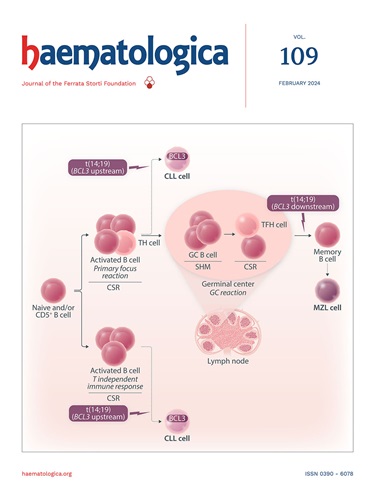Moving forward from spleen response as an endpoint in randomized controlled trials in myelofibrosis.
IF 7.9
1区 医学
Q1 HEMATOLOGY
引用次数: 0
Abstract
Anticancer drugs should make patients live longer and/or feel better. Ideally, endpoints of cancer randomized controlled trials (RCTs) should demonstrate that a drug leads to an increase in overall survival (OS) and/or improvement in quality of life (QOL). With the aim of including smaller patient numbers, running shorter trials and thus getting new drugs to patients faster, cancer RCTs increasingly use (putative) surrogate endpoints. However, changes in surrogate endpoints often do not reliably predict improvements in OS and/or QOL. Furthermore, especially in later lines of cancer treatments or in cancer with a short life expectancy, use of surrogates does hardly speed up the availability of novel therapies but increases the advent of costly toxic drugs with uncertain benefit, thereby harming both patients and society. In myelofibrosis (MF) spleen response has extensively been used as a surrogate for clinical outcome. In this review we argue that there is no convincing evidence for the use of spleen response or other surrogate endpoints in MF, and that the use of surrogate endpoints in MF RCTs should be avoided altogether.从脾脏反应作为骨髓纤维化随机对照试验的终点向前推进。
抗癌药物应该能使病人活得更长或感觉更好。理想情况下,癌症随机对照试验(rct)的终点应该证明药物导致总生存期(OS)的增加和/或生活质量(QOL)的改善。为了减少患者数量,缩短试验时间,从而更快地为患者提供新药,癌症随机对照试验越来越多地使用(假定的)替代终点。然而,替代终点的变化通常不能可靠地预测OS和/或QOL的改善。此外,特别是在癌症治疗的后期或预期寿命较短的癌症中,使用替代品几乎不能加快新疗法的可用性,而是增加了昂贵的毒性药物的出现,这些药物的疗效不确定,从而损害了患者和社会。在骨髓纤维化(MF)中,脾脏反应被广泛用作临床结果的替代指标。在这篇综述中,我们认为没有令人信服的证据表明在MF中使用脾脏反应或其他替代终点,并且在MF随机对照试验中应该完全避免使用替代终点。
本文章由计算机程序翻译,如有差异,请以英文原文为准。
求助全文
约1分钟内获得全文
求助全文
来源期刊

Haematologica
医学-血液学
CiteScore
14.10
自引率
2.00%
发文量
349
审稿时长
3-6 weeks
期刊介绍:
Haematologica is a journal that publishes articles within the broad field of hematology. It reports on novel findings in basic, clinical, and translational research.
Scope:
The scope of the journal includes reporting novel research results that:
Have a significant impact on understanding normal hematology or the development of hematological diseases.
Are likely to bring important changes to the diagnosis or treatment of hematological diseases.
 求助内容:
求助内容: 应助结果提醒方式:
应助结果提醒方式:


